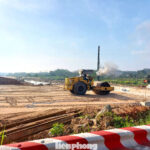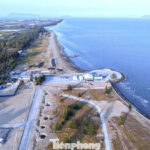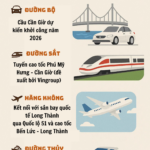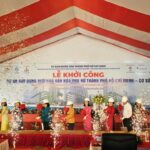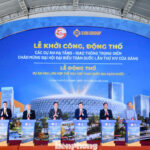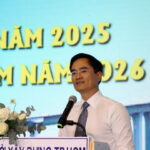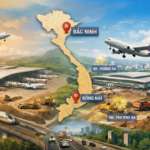Skyrocketing Costs
Recently, numerous real estate companies in Ho Chi Minh City (HCMC) have voiced concerns over the calculation of land use fees and unexpected additional charges, with some even submitting letters to return their projects to the HCMC People’s Committee.
Specifically, Empire City Development Joint Venture Company Limited, the developer of the Empire City project, has petitioned the HCMC People’s Committee to review an additional land use fee of VND 8,819 billion, which is 2.46 times the amount already paid. Furthermore, authorities have demanded the company pay additional fees if further conclusions are reached by competent agencies.
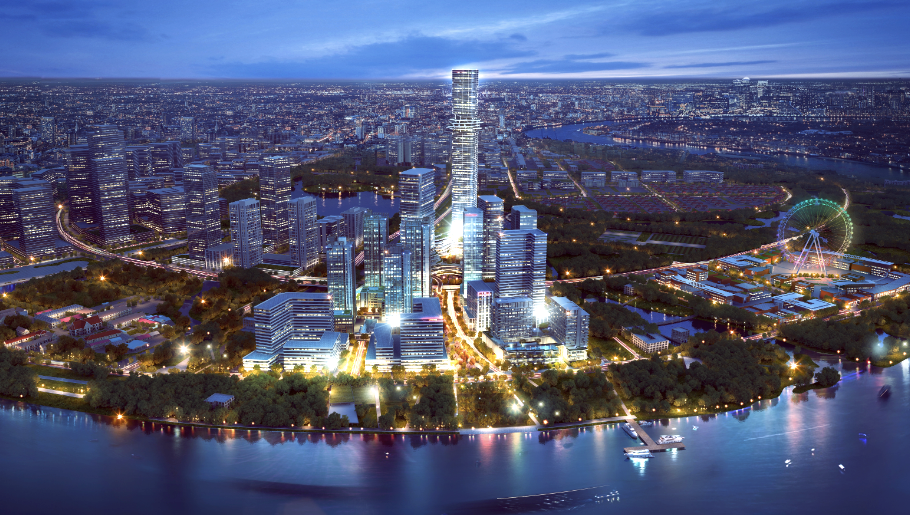
Rendering of the Empire City project.
Empire City Development Joint Venture Company Limited stated that on September 5, 2016, HCMC issued a decision allocating over 11 hectares of land to the company for a 50-year period, starting from June 23, 2015, with land use fees. By early 2017, the company had fulfilled its financial obligations, paying nearly VND 3,600 billion. The land allocation decision explicitly stated that the developer would not be required to pay additional fees when switching from a land lease to land use fee payment.
According to the Empire City developer, this situation has raised significant concerns and impacted investor confidence, particularly among foreign investors, regarding the stability of HCMC’s policies and investment environment.
Therefore, the company urges authorities to determine additional financial obligations in line with the Government Inspectorate’s conclusions, based on the 2015 land allocation date and applying Circular 36/2014. Planning adjustments should be integrated into this process to avoid multiple revisions, saving time and resources for both regulators and businesses.
Similarly, Lotte Properties HCMC Co., Ltd. has notified the HCMC People’s Committee and the Department of Finance of its decision to terminate the contract for the Thu Thiem Eco Smart City project in Functional Area 24 of the Thu Thiem New Urban Area.
In its letter, Lotte Properties HCMC Co., Ltd. emphasized its patience over eight years (from the signing of contract No. 4647/HD-UBND with the HCMC People’s Committee on July 26, 2017, to the completion of land price appraisal on June 30, 2025) and full compliance with investor obligations under the law.
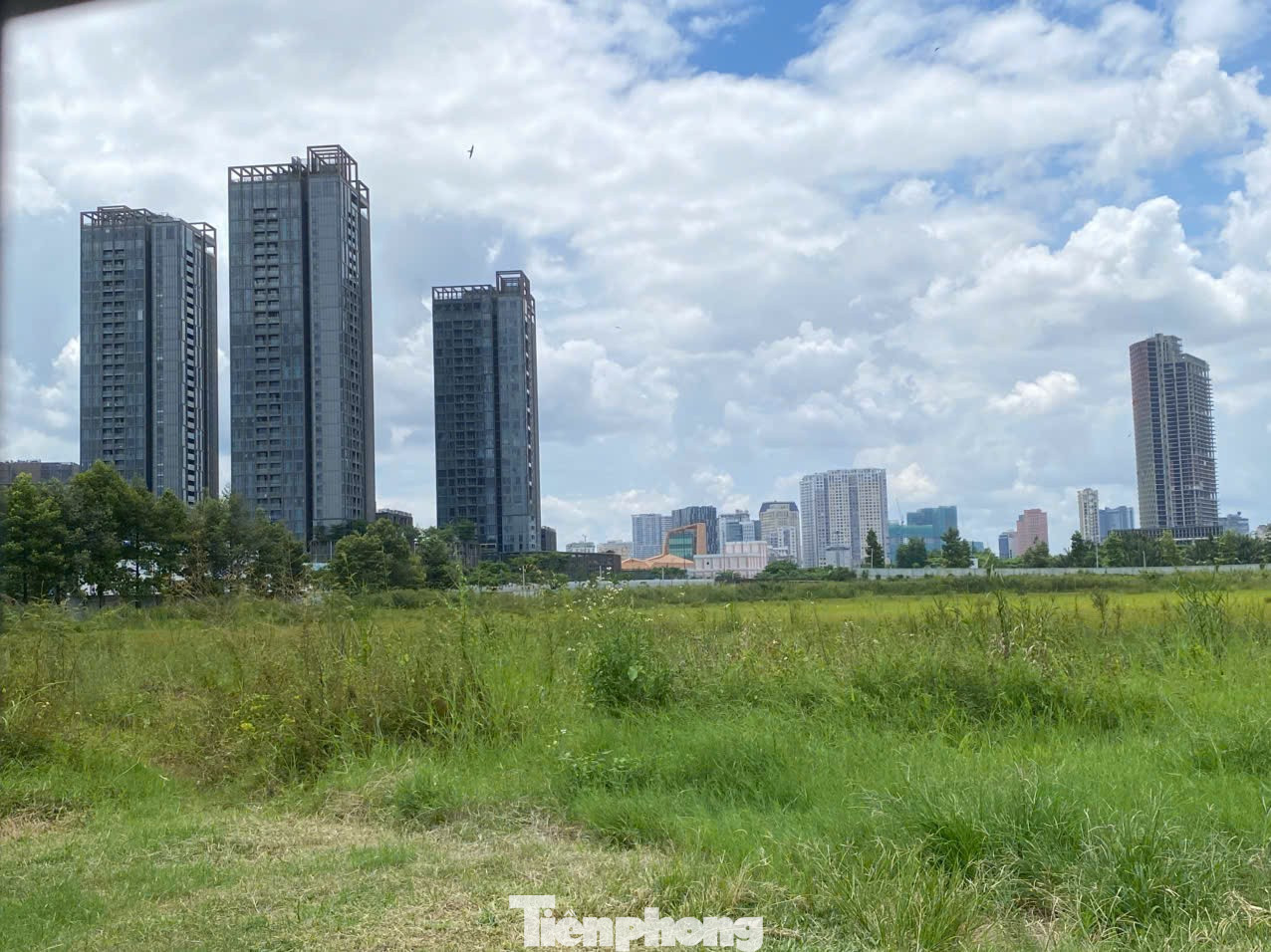
Lotte Properties HCMC Co., Ltd. has notified the termination of the Thu Thiem Eco Smart City project contract.
However, due to delays caused by government inspections and land price appraisals, the Thu Thiem Eco Smart City project has faced severe stagnation. This has led to significant increases in land use fees, land rent, and overall investment costs, compounded by policy changes necessitating project adjustments.
Lotte Properties HCMC Co., Ltd. stated it can no longer proceed with the project, including fulfilling land use fee obligations. This decision follows a comprehensive assessment and careful deliberation by investors.
Finding Balance
Mr. Le Hoang Chau, Chairman of the Ho Chi Minh City Real Estate Association (HoREA), noted that Lotte faces an additional land use fee of approximately VND 2,600 billion for this project. At the time of contract signing in 2017, the 2013 Land Law did not require users to pay additional fees for periods not yet subject to land use or rental fees. Additionally, Lotte was informed that the project’s land use fee would be VND 16,190 billion.
The HoREA Chairman stated that state agencies requiring users to pay additional land use or rental fees for uncalculated periods affects not only Lotte but also many domestic and foreign real estate companies.
In HCMC alone, approximately 100 projects await financial obligation notifications, potentially including additional fees. Major affected companies include Novaland with 13 projects and Hung Thinh Land with 8 projects.
HoREA proposes adding clear provisions to the draft Resolution on mechanisms and policies to address Land Law implementation issues. The Government should outline land pricing methods and additional land use or rental fees under points a, b, and c of Article 257.2 of the 2024 Land Law, except where users are not at fault.
HoREA also recommends allowing provincial People’s Committees to deduct paid additional fees from other financial obligations if companies are not at fault. The association suggests applying additional fees only when users are at fault.
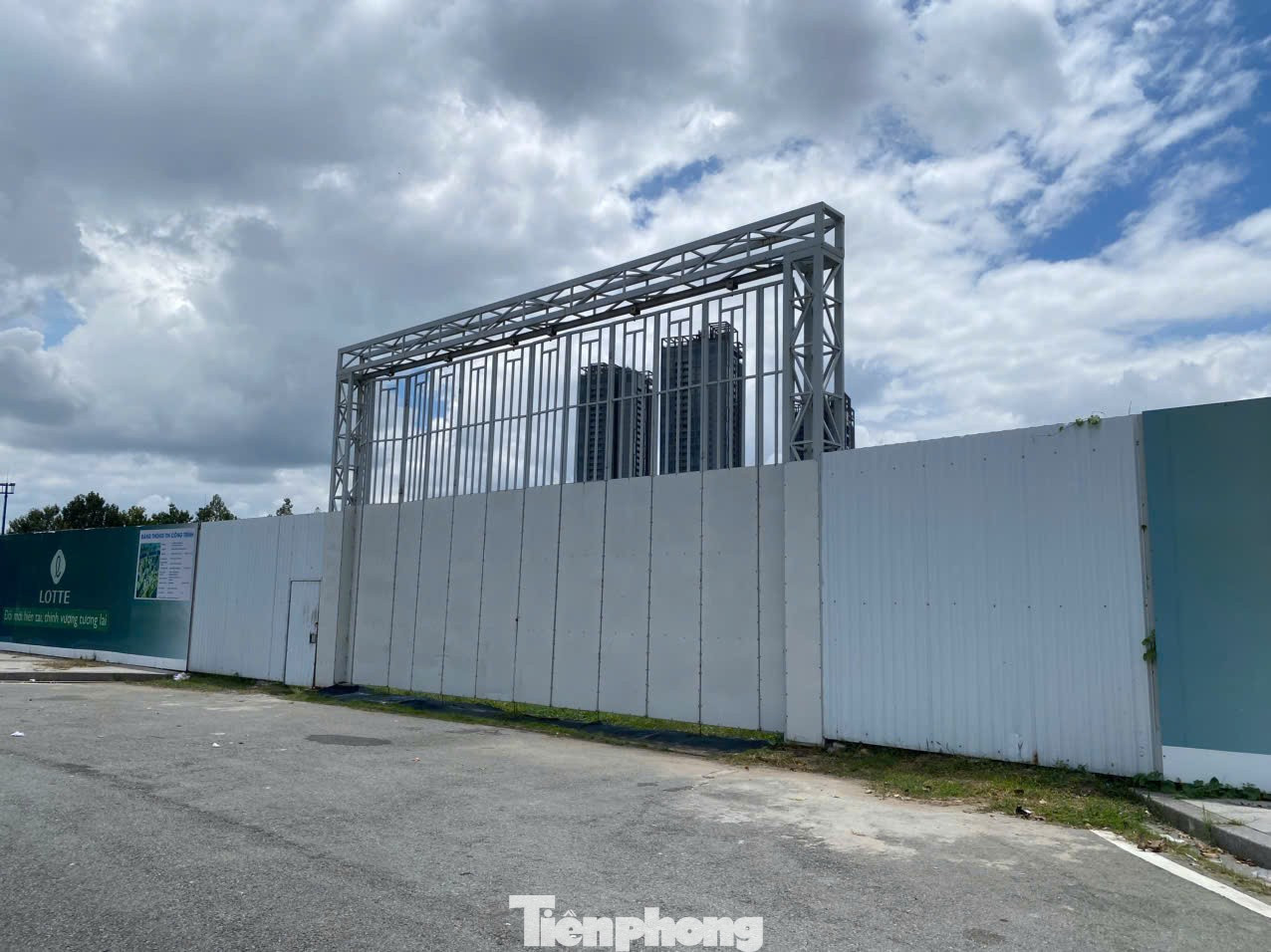
In HCMC, approximately 100 projects await financial obligation notifications, potentially including additional fees.
If the National Assembly approves these provisions, HoREA further recommends allowing companies to deduct paid additional fees from other financial obligations to ensure fairness and reasonableness.
Additionally, HoREA proposes amending Decree 103/2024, which currently sets the additional fee rate at 5.4%/year on the payable amount. Mr. Chau suggests reducing this rate to 3.6%/year.
Regarding this issue, the HCMC People’s Committee has petitioned the Ministry of Agriculture and Rural Development and the Ministry of Finance to eliminate additional fees for uncalculated land use or rental periods under Article 257.2 of the 2024 Land Law.
Currently, adjusted land prices significantly impact households and individuals seeking land use conversions, with high differential payments restricting user rights. Therefore, the HCMC People’s Committee recommends that the Government propose a National Assembly resolution setting land use fees for households and individuals converting land within residential limits at 20–30% of the land price table.
For Article 257.2 of the 2024 Land Law regarding additional fees for uncalculated periods, the HCMC People’s Committee recommends amendments to eliminate these fees, as the 5.4%/year rate on payable amounts, when users are not at fault, is unreasonable.
Unveiling the $260 Million Southeast Vietnam Drainage and Flood Control Project
The Suoi Cai Drainage Axis project in Ho Chi Minh City, with an investment of nearly VND 6,000 billion, is a transformative initiative. Designed to address flooding and improve drainage in the former industrial hub of Binh Duong, this project extends its benefits to the entire Southeast region. Flanking the drainage axis are newly constructed roads, complete with sidewalks and greenery, enhancing both functionality and aesthetics.
Ho Chi Minh City Vice Chairman Directs Action on Proposed Can Gio – Vung Tau Sea-Crossing Road
Bùi Xuân Cường, Vice Chairman of the Ho Chi Minh City People’s Committee, has tasked the city’s Department of Finance with leading the review and proposal for a feasibility study on a sea-crossing route connecting Can Gio and the former Ba Ria – Vung Tau area. The project is to be developed under the Build-Transfer (BT) model. Collaborating with relevant departments and units, the Department of Finance is expected to submit recommendations to the city’s People’s Committee by October 10.
Ho Chi Minh City Launches Major Emulation Campaign
The competition kicks off in early October 2025, culminating on December 31st, and is structured into two distinct phases.


